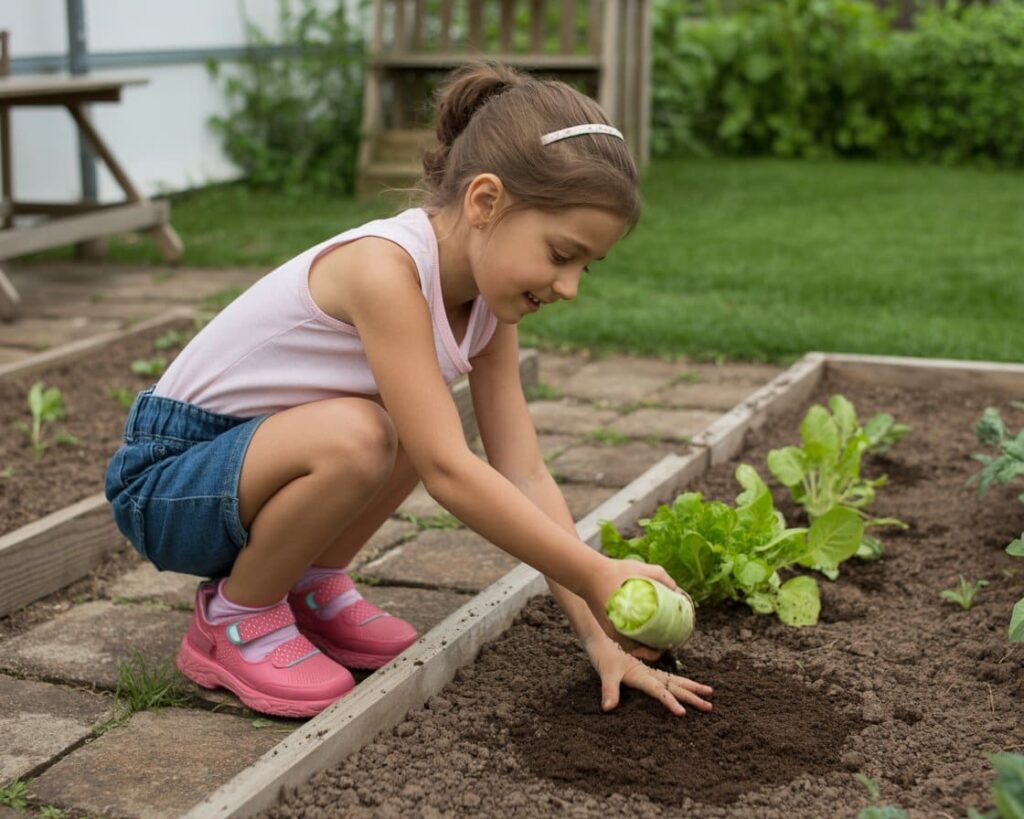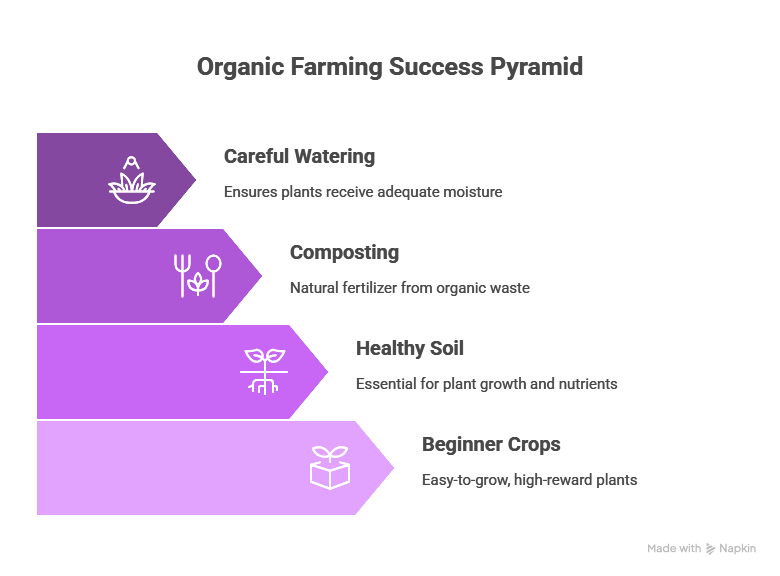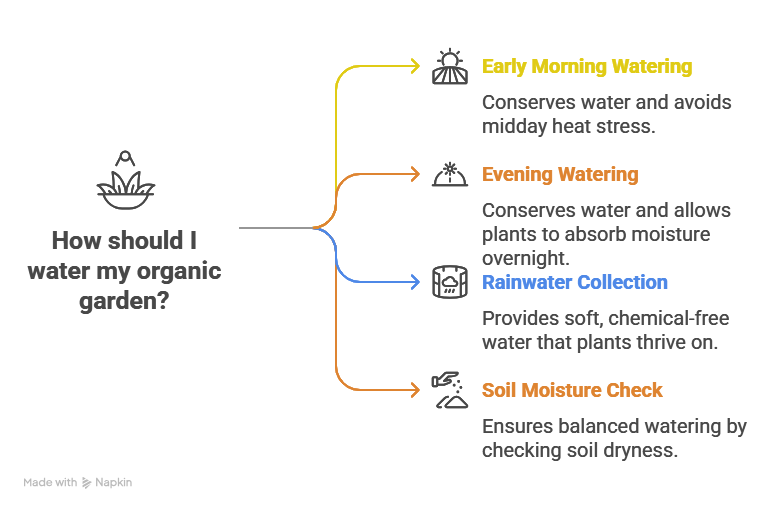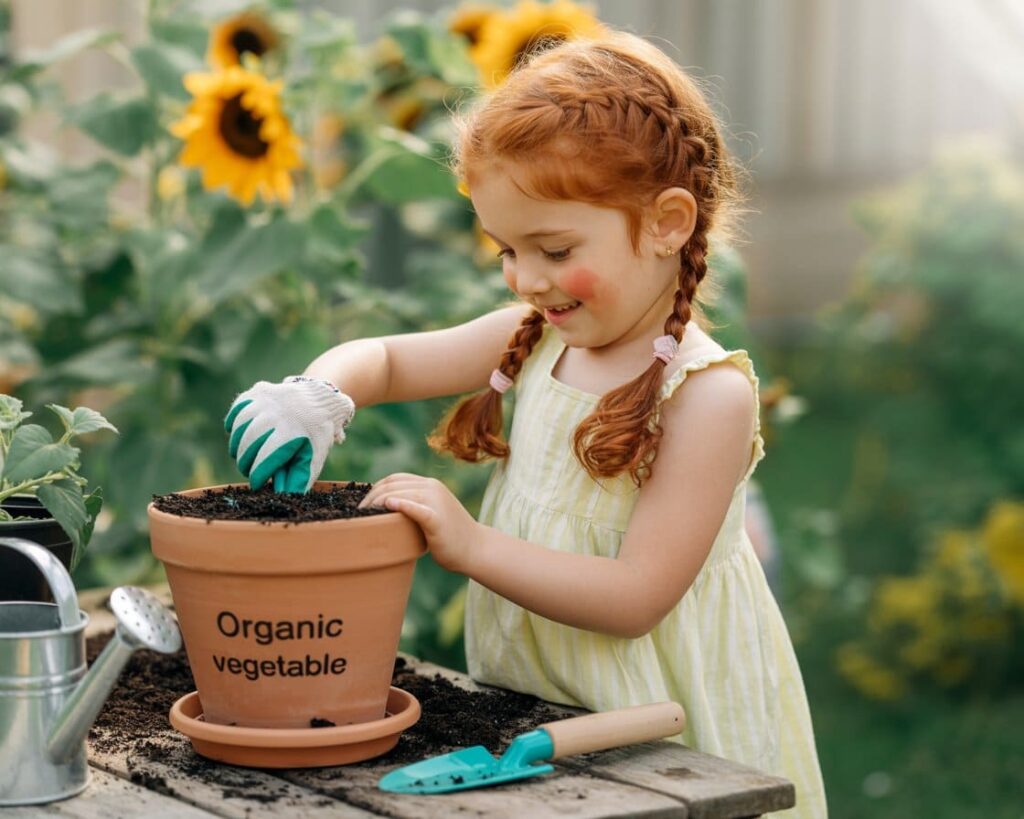In this fast-moving, hyper-digitised world, most of us feel like we need something to ground us in the environment. Our consciousness about what goes on our plates and where the food comes from has been growing steadily. Here’s where organic farming at home comes into the picture, offering fresh produce and extra time for thinkers to just slow down and ponder.
Imagine something as simple as plucking fresh mint leaves for your chai or gathering some spinach for dinner, all from just a couple of pots placed by the balcony. Isn’t organic gardening at home rewarding and a definite game-changer?
Organic foods have been in demand across the globe for so long, but now in India, it seems to have turned into somewhat of a movement. As stated in the FiBL & IFOAM Organic World Report 2023, India has over 4.6 million certified organic farmers, making it the highest organic producer base in the world.
However, strangely, a LocalCircles survey in 2022 indicated that while 74% of households in India preferred organic produce, only 18% of them could get it regularly, the reasons cited being either cost, lack of trust, or non-availability of the produce in the market.
But the cool part is, you don’t need to have a farm to be a farmer. Whether you reside in a high-rise somewhere in Mumbai, a small studio apartment in Bengaluru, or perhaps a friendlier home in any town, all that you need to grow clean, chemical-free food is an insignificant investment in some space, sunshine, patience, and plenty of love. That’s the spirit of organic farming in home.

Potential Steps Towards Organic Farming at Home

- Start Small and Identify Your Space for Organic Farming
Before starting organic farming at home, one should weigh the options of his/her living space. No huge garden or fancy tools are necessary. Organic farming in home can start with just a balcony, terrace, kitchen windowsill, or hanging pots.
The foremost condition that organic gardening at home needs is sunlight. Most vegetables and herbs require at least 4–6 hours of direct sunlight a day, so time every potential spot in your home for some days before setting up.
Apart from that, an empty small corner can be converted into a verdant green pocket with vertical gardens or wall planters, and this makes the process of organic gardening at home possible even in small urban apartments.
- Choose Beginner-Friendly Crops to Grow Organically
One of the common mistakes beginners make is to try to grow everything at one time. Instead, concentrate on easy-to-grow, high-reward plants that grow well in the Indian climate. For organic farming in home, one must make sure to use native seeds that are non-GMO and adapted to his or her zone. Some good beginner options are:
- Herbs: Tulsi (Holy Basil), Mint (Pudina), Coriander (Dhaniya), Curry Leaves
- Leafy Greens: Spinach (Palak), Fenugreek (Methi), Mustard Greens (Sarson), Amaranth (Chaulai)
- Vegetables: Tomatoes, Chillies, Brinjals (Baingan), Okra (Bhindi)
You can pick up trusted organic online or at your local nursery. Starting with the right seeds makes organic gardening at home way more fruitful.
- Select Healthy Soil
The whole system of organics is based upon a core concept: soil health. To mix your organic gardening at-home potting mix, combine:
- 1 part garden soil
- 1 part cocopeat (to retain moisture)
- 1 part compost (could be homemade or vermicompost)
Add in any of the following as nutrients: cow dung manure, neem cake powder, crushed eggshells. These ingredients boost the microbial activity in soil, thus keeping pests at bay as they can never harm organic farming at home.
- Composting: Your Free Fertiliser at Home
An important step on the path toward sustainability in organic farming in home is composting. Instead of throwing away your kitchen waste, you should nurture it to become nutrient-rich compost. For composting at home, use a small bin or bucket with a lid. Layer the wet waste (vegetable peels, fruit scraps, tea leaves)/dry waste (dried leaves, shredded newspaper).
Stir the mixture every couple of days and keep it half-covered. By 4 to 6 weeks, you will get the earthy-smelling crumbly compost that your plants will simply adore. Never add any cooked food, dairy, or meat, as that may attract pests and inhibit their decomposition. Composting completes the cycle of organic gardening at home.
- Watering the Organic Garden with Care
Watering is perhaps the first of all conditions neglected and should never be so. Too much water causes rot and too little retards the development of roots. The accepted recommendation is the moment you feel the soil is dry to an inch, watering becomes imperative.

Try to water your plants early morning or in the evening to conserve water. Small plants and herbs should be sprayed on the soil without disturbing the roots. Rainwater collected during monsoon seasons is soft and has no chemicals, so plants enjoy it a lot. Balanced watering is the heartbeat of organic farming at home.
How to Prevent Pests in Organic Gardens?
Organic farming at home is based on avoiding the use of chemical pesticides. It is better to use natural home remedies that are harmless and still effective. If you make a simple neem oil spray by putting 1 teaspoon of neem oil, a drop of liquid soap and water into a spray bottle, applying the mixture weekly should keep pests away. More ways to solve this problem with things found in nature are:
- Applying buttermilk spray is a solution to keep fungus away.
- Insects are discouraged by spraying garlic and chilli together.
For example, put marigolds by your tomatoes to protect against pests or put basil near chillies for the same reason.
Thanks to these methods, your environment and your healthy produce will remain chemical-free. Keep a log of everything that happens in your organic gardening at home. By keeping a small gardening diary, you can monitor your seeds, detect pests, if any, and note when you watered or came across yellowing leaves. As a result, you realise what’s effective and what’s not, and you might see patterns that will help your harvest get better each year.
Organic Farming Checklist
To start with organic farming in home, make sure you have these things:
- Organic seeds (seeds of herbs, greens or vegetables).
- You should use pots or grow bags that are at least 6–8 inches deep.
- Make sure you use either organic potting mix or compost ingredients.
- Watering bottle
- Applying neem oil is useful for handling pests.
- Hand gloves and the essential gardening tools
- A compost bin or container is a good solution.
These products are available from gardening websites or any standard gardening shop. Little steps in organic farming at home count more than no steps.

A Real Story to Inspire
In the summer of 2020, Ashneer, an IT consultant at the age of 32, took up organic gardening at home by planting in three pots. Mint, spinach and tomatoes were the first ingredients she used. Most of the vegetables she needed every week are grown by her in the terrace garden only.
She recalls thinking that bhindi only grew in big farmlands. But she is currently growing it herself, which makes it even sweeter, crisper and simply better in every way. There are thousands of similar stories about organic farming at home today, and Ashneer’s story is just one of them.
Importance of Starting Organic Farming at Home
If you grow your food through organic gardening at home, you lessen your dependence on the store, make your lifestyle greener, throw away fewer edibles and help the planet. Taking care of your tomato plants keeps the Earth from being exposed to the emissions from transporting them. Whenever you cut spinach from your plants, you reduce the use of plastic packaging. What you’re doing is regaining independence when it comes to food, your health, your space and your future.
Conclusion
In today’s world, where everything is immediately available, deciding to grow your food may look uncommon. Organic farming at home is mainly about showing care and effort, not about being flawless. The point is to strengthen your relationship with your food, with nature and with who you are as a person. When you work with plants, you realise that growing things is full of joys, disappointments and moments of excitement. They exhibit that it’s important to be patient and persistent, as well as skilled in organic gardening at home.
For anyone who grows veggies and herbs at home, organic farming in home is not only pleasant, but it is also a way to resist groups or situations you disagree with. You are avoiding pesticides, not relying on plastic packaging and putting a stop to the emissions caused by transporting vegetables. Say yes to purer foods, fresh air and a healthier way of living. All the seeds you use help the environment and improve your well-being.
Therefore, if you have been interested in learning, now is the best time to begin. Get a good pot, put in the seed and wait for the process to work. Having in-depth knowledge is not necessary. The hardest part is to begin. Since life can be unpredictable, your organic gardening at home can turn into your sanctuary, a source of energy and a healthy oasis.


Your blog are really helpful
Thank you, keep supporting us